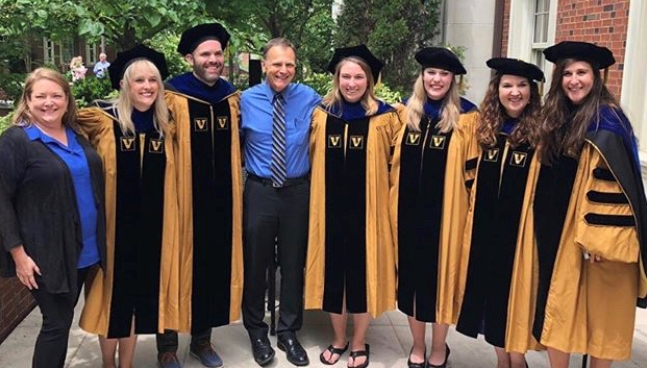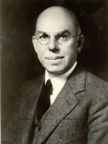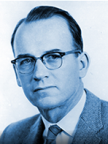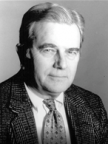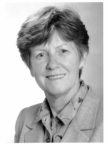Department History
Past Department Chairs
Dr. Paul Lamson was the first Chair of the Department of Pharmacology at Vanderbilt. Dr. Lamson obtained his medical degree from Harvard University in 1909 and did further training at Massachusetts General Hospital, the University College in London and the University of Wurzburg in Germany before joining the faculty of Johns Hopkins Medical School in 1914. His early work in electrocardiography resulted in the publication of a book, “The Heart Rhythms”, in 1921. In 1923, he was recruited by Dr. Canby Robinson to be the Chair of the Department of Pharmacology, a position he held until 1952.
Dr. Lamson made significant contributions to the field of Pharmacology including the introduction of carbon tetra-chloride therapy and hexylresorcinol therapy for the treatment of hookworm and ascariasis. Furthermore, he was one of the first researchers to recognize the importance of chemistry and the use of “chemical probes” to elucidate mechanisms of drug action.
In 1951, he demonstrated the “Lamson effect” by showing that glucose given intravenously to animals awakening from barbiturate anesthesia caused them go back to sleep. He also described the role of the liver in the regulation of blood volume, was the first to artificially produce cirrhosis of the liver, and built one of the first artificial hearts. Dr. Lamson’s additional contributions include his work in the areas of toxicity, acute polycythemia, and shock.
In addition to teaching and research, Dr. Lamson was also active in many professional organizations including the American Society for Pharmacology and Experimental Therapeutics. He served as the Vice-President of the American Association for the Advancement of Science in charge of the Section on Medical Science in 1943. He was also editor-in-chief of the Journal of Pharmacology and Experimental Therapeutics from 1937 to 1940.
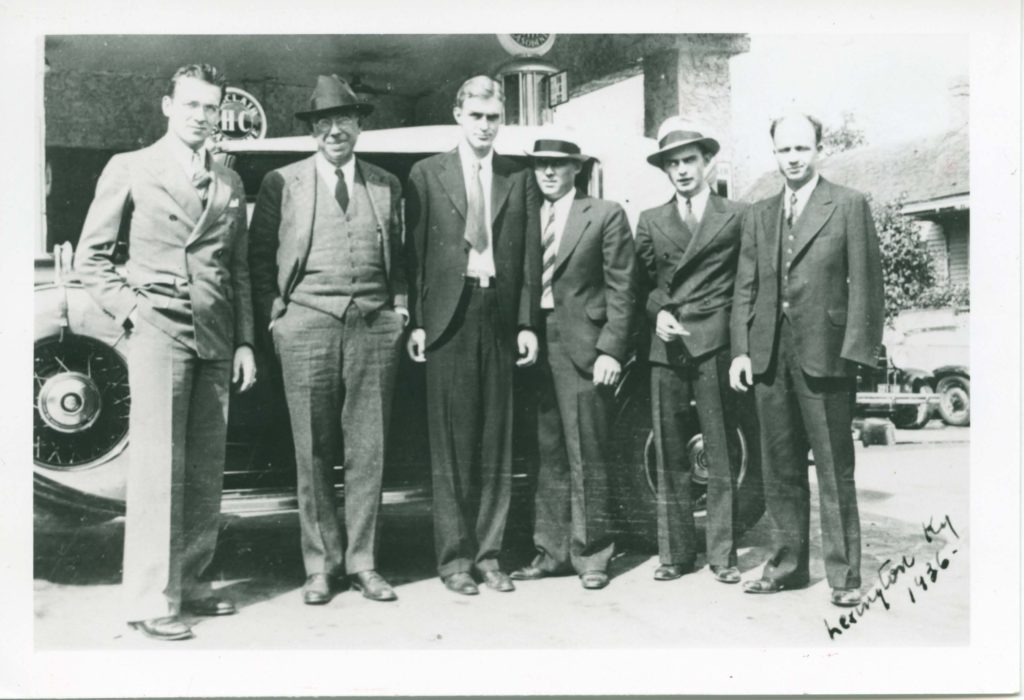
Allan D. Bass was Professor and Chairman of the Department of Pharmacology at Vanderbilt University School of Medicine from 1953 until 1973. He served as Acting Dean of the School of Medicine from 1973 to 1974 and as Associate Dean for Biomedical Sciences from 1973 until his retirement in 1975. Additionally, he was Associate Chief of Staff for Education at the Veterans Administration Hospital from 1974 to 1981.
Dr. Bass was nationally recognized as an outstanding administrator, scientist, and educator. He participated actively in many national societies including The American College of Physicians, American Society for Pharmacology and Experimental Therapeutics (President, 1967-1969) and the American Medical Association Council on Drugs (1962-1972). Dr. Bass was active in scientific research for more than four decades, and wrote many professional papers on such topics as anthelmintics, skin sterilizing agents, sulfonamides, adrenal corticosteriods, hormones, and chemical transmitters.
Dr. Bass was responsible for the development of Vanderbilt’s Department of Pharmacology from a relatively small entity to a program that has achieved national recognition. As an educator, Dr. Bass always made every effort to assist each student to reach his or her academic potential and to meet professional requirements. Pre-doctoral and post-doctoral students trained in pharmacology during Dr. Bass’ tenure now reside throughout the nation and several foreign countries, and many have held leadership positions in academia, government and the pharmaceutical industry.
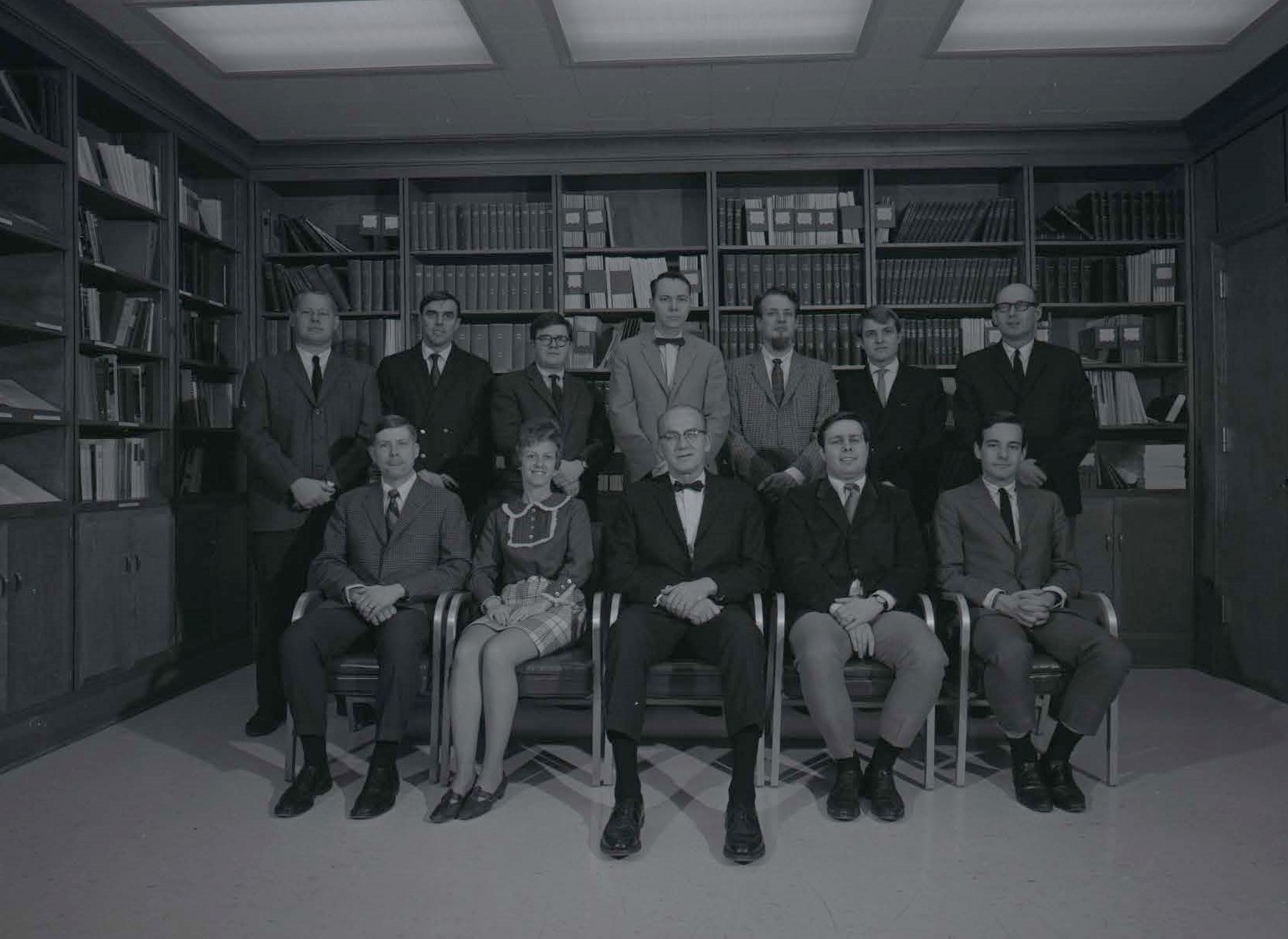
Joel G. Hardman served as Chair of the Department of Pharmacology from 1975-1990, establishing the department as a premier place for research and training in pharmacology. A major reason for the success of the Training Program in Pharmacological Sciences was Dr. Hardman’s personal involvement in the mentoring of each graduate student. He expected each student to perform at their best and created an intellectual environment that fostered the scientific growth and critical thought of students, postdoctoral fellows and faculty colleagues.
Joel G. Hardman received his Ph.D. degree in Pharmacology from Emory University in 1964. He came to Vanderbilt to be a postdoctoral fellow with Earl Sutherland. After his early work on cyclic AMP as a second messenger, carried out in Sutherland’s laboratory, Dr. Hardman went on to discover guanylate cyclase, the enzyme responsible for synthesizing cyclic GMP from GTP. This discovery led to the appreciation that cGMP, like cAMP, can serve as an intracellular second messenger. He rose through the ranks to become Professor of Physiology in 1972. His creative and incisive mind, which contributed to his discoveries, also served him well in his role as teacher and mentor. In 1975, he was appointed as Chair of Pharmacology, and in 1991 was named Associate Vice-Chancellor for Health Affairs.
Dr. Hardman is internationally recognized as an outstanding scientist, educator and administrator. In 1992, Dr. Hardman became Co-Editor-In-Chief of the major text in pharmacology, Goodman and Gilman’s “The Pharmacological Basis of Therapeutics”, which is published in many languages worldwide. He served as President of the American Society for Pharmacology and Experimental Therapeutics from 1993 to 1994.
Our graduate students in pharmacology named their annual forum the Joel G. Hardman Student-Invited Pharmacology Forum in recognition of Dr. Hardman’s sustained interest in the training of young scientists.
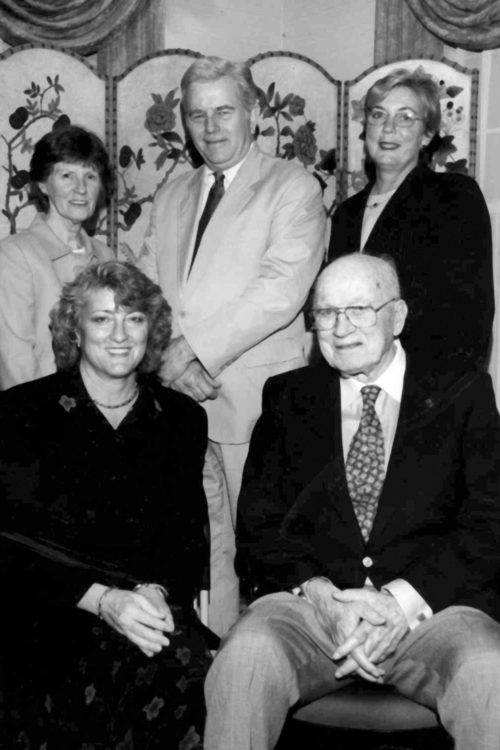
A native of Philadelphia, Lee Limbird obtained her B.A. degree in Chemistry in 1970 from the College of Wooster and her Ph.D. in biochemistry in 1973 from the University of North Carolina. After postdoctoral research at Duke University, she joined the Department of Pharmacology at Vanderbilt University in 1979, where she served as the Chair of the Department of Pharmacology from 1991-1998.
From 1998-2003, Dr. Limbird served as Vanderbilt University Medical Center’s first Associate Vice Chancellor for research. In this capacity, she also represented Vanderbilt on the Governor’s Task Force on Technology, the Tennessee Technology Development Corporation, and as a member of the Steering Committee for the Meharry-Vanderbilt Alliance. In 2005, she joined Meharry Medical College as Vice President for Research and Chair of the multidisciplinary Department of Biomedical Sciences. Dr Limbird moved to Fisk University in Nashville in 2008 where she serves as Dean of the School of Natural Sciences, Mathematics and Business Administration. In addition, she serves as Coordinator of the Pre-Health Professions.
While at Vanderbilt, Dr. Limbird led a research laboratory focusing on the basis for the actions of epinephrine and norepinephrine via alpha2-adrenergic receptors, examining the functional relevance of receptor structure, receptor interface with a variety of signaling pathways, and receptor trafficking itineraries. Her laboratory exploited strategies ranging from the molecular to those in whole organisms, including genetically engineered mice.
In recognition of her research throughout her career, Dr. Limbird received a Young Investigator Award, a Career Development Award, and a MERIT Award from the National Institutes of Health (NIH); the John Jacob Abel Award in Pharmacology; the Distinguished Young Scientist Award from the American Association of University Women; an Established Investigator Award from the National Association of Research on Schizophrenia and Depression, and the Goodman and Gilman Award in Receptor Pharmacology from the American Association of Pharmacology and Experimental Therapeutics (ASPET).
She is the author of the textbook “Cell Surface Receptors: A Short Course in Theory and Methods” (three editions) and is Co-Editor, with Joel G. Hardman, of Goodman and Gilman’s “Pharmacological Basis for Therapeutics”, 9th and 10th editions. Her editorial board service has included the Journal of Biological Chemistry, the Journal of American Physiology, and Molecular Pharmacology, serving as Associate Editor from 1982-1987
Dr. Limbird has served as Chair of the Pharmacology Study Section for the NIH; Chair of the Board of Scientific Counselors of the National Institute for Diabetes, Digestive and Kidney Diseases (NIDDK) for the NIH; member of the Board of Scientific Counselors for the National Institutes of Drug Abuse; and Chair of the Blue Ribbon Committee for Review of the NIDDK Intramural Research Program. She also was a member of the Searle Scholar Advisory Board and the Burroughs Wellcome Foundation National Advisory Committee, and represented the American Association of Pharmacology and Experimental Therapeutics as Treasurer and as a member of its Council.
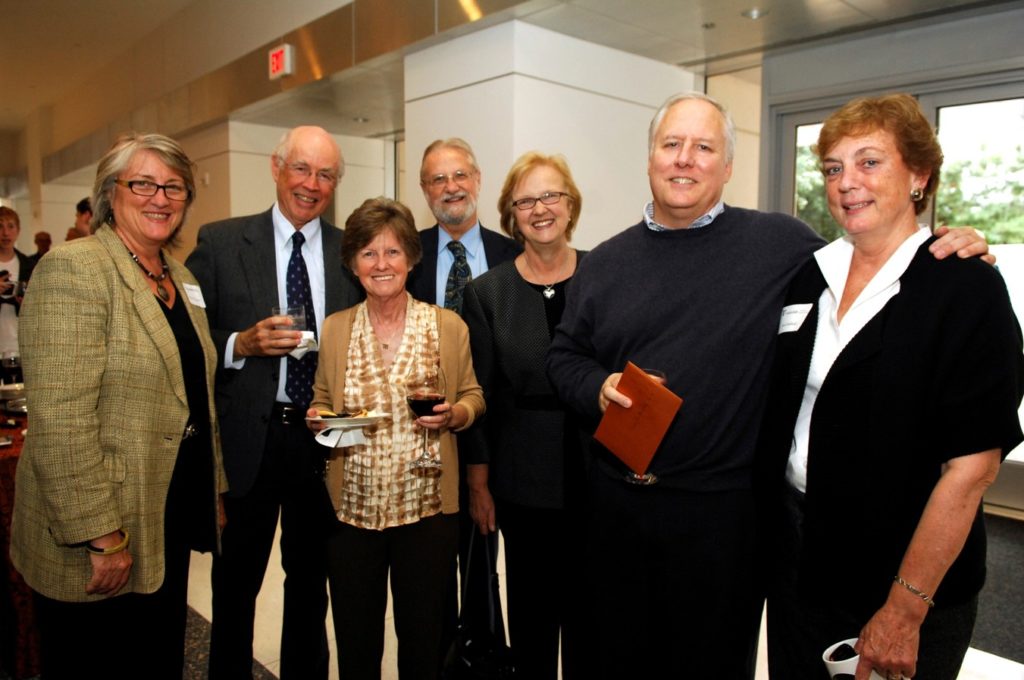
Born and raised on a small farm in Kentucky, Elaine Sanders-Bush attended Western Kentucky University in Bowling Green, where a visiting professor in pharmacology from Vanderbilt University introduced her to the excitement of scientific research and the significant opportunities made available by advanced training. Upon graduation with a B.S. in Biology and Chemistry, she joined the graduate program in pharmacology at Vanderbilt in 1962 and earned a Ph.D. degree in Pharmacology in 1967. After post-doctoral training, she joined the Vanderbilt faculty in 1969, where she remained until her retirement in 2010, interrupted only by brief sabbaticals at the Karolinska Institute in Stockholm and Stanford University.
Her service locally and nationally has been transformative. In 2006, she was elected President of the American Society for Pharmacology and Experimental Therapeutics. In that year, she was also named the Harvie Branscomb Distinguished Professor at Vanderbilt University.
Dr. Sanders-Bush’s research has made major contributions to the understanding of serotonin and its receptors, from pharmacology and signal transduction to in vivo brain function. Her research interest in serotonin dates back to her graduate school days studying the metabolic inactivation of a hallucinogenic serotonin derivative. Over time, as neuroscience research expanded exponentially, her work evolved to take advantage of the tremendous advances that were offered in molecular biology, genetics and behavior. Her research accomplishments have brought her broad recognition at a national and international level; among her research awards are a Bristol-Myers Squibb Award for Neuroscience Research, a MERIT Award from the National Institute of Mental Health and the Heftner Prize for Outstanding Basic Research.
Dr. Sanders-Bush has been a leader in the development of neuroscience research and graduate education at Vanderbilt. In 1997, she spearheaded the creation of a new Ph.D. degree program in neuroscience and served as director of that program until 2008. During this decade, the program grew to more than sixty graduate students. In 2002, she was appointed the first Director of the Vanderbilt Brain Institute. In recognition of her impact in graduate education at Vanderbilt, the Elaine Sanders-Bush Award for Mentoring Graduate and/or Medical Students in the Research Setting was created in 2006. Dr. Sanders-Bush has a deep personal commitment to enhancing opportunities for minority trainees and has worked to enhance minority training programs at Tennessee State University, Meharry Medical College, and Vanderbilt. In recognition of her commitment and accomplishments, she was the first recipient of Vanderbilt’s Levi Watkins, Jr., Award for Leadership Diversity in 2002 and, in 2009, the Dr. Dolores C. Shockley Lecture and Partnership Award.
Over the course of her career, Dr. Sanders-Bush has mentored scores of graduate students and postdoctoral fellows as well as junior faculty. She has a strong record of training students who think both creatively and critically and is recognized for being a nurturing mentor while insisting that her students function at their highest level. Her former trainees hold prominent positions at major U.S. academic centers and in the pharmaceutical industry.
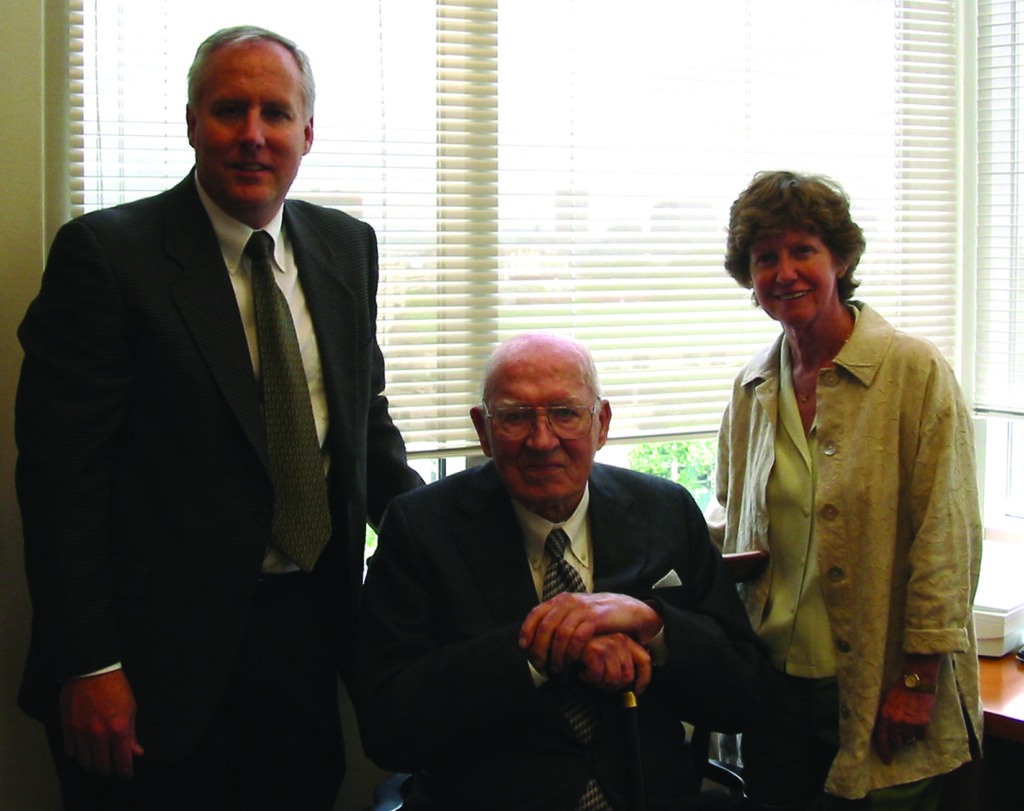
Dr. Hamm was born in Loma Linda, California. She came to Vanderbilt University as the Chair of the Department of Pharmacology in 2000 from Northwestern University.
In addition to teaching and research, Dr. Hamm is also active in many professional organizations including the American Society for Biochemistry and Molecular Biology, American Society for Pharmacology and Experimental Therapeutics, Biophysical Society, Association for Research in Vision and Ophthalmology, Society for Neuroscience, and Association of Medical School Pharmacology Chairs.
In 2015 she received the Robert R. Ruffolo Career Achievement Award in Pharmacology given by the American Society for Pharmacology and Experimental Therapeutics (ASPET); in 2012 she received the Ariens Award, Dutch Pharmacological Society (NVF) presented at the Ariens Society Annual Meeting in the Netherlands; and in 2011 Dr. Hamm was made Fellow, American Association for the Advancement of Science.
Dr. Hamm’s work is currently focused on understanding the molecular basis of signaling mechanisms mediated by G proteins, which are switch proteins. G proteins are normally inactive, but a receptor that has received a specific signal can activate G proteins, leading to changes in the activity of enzymes that produce second messengers such as cyclic AMP and calcium.
Since 2012 Dr. Hamm has been the Aileen M. Lange and Annie Mary Lyle Chair in Cardiovascular Research at Vanderbilt.
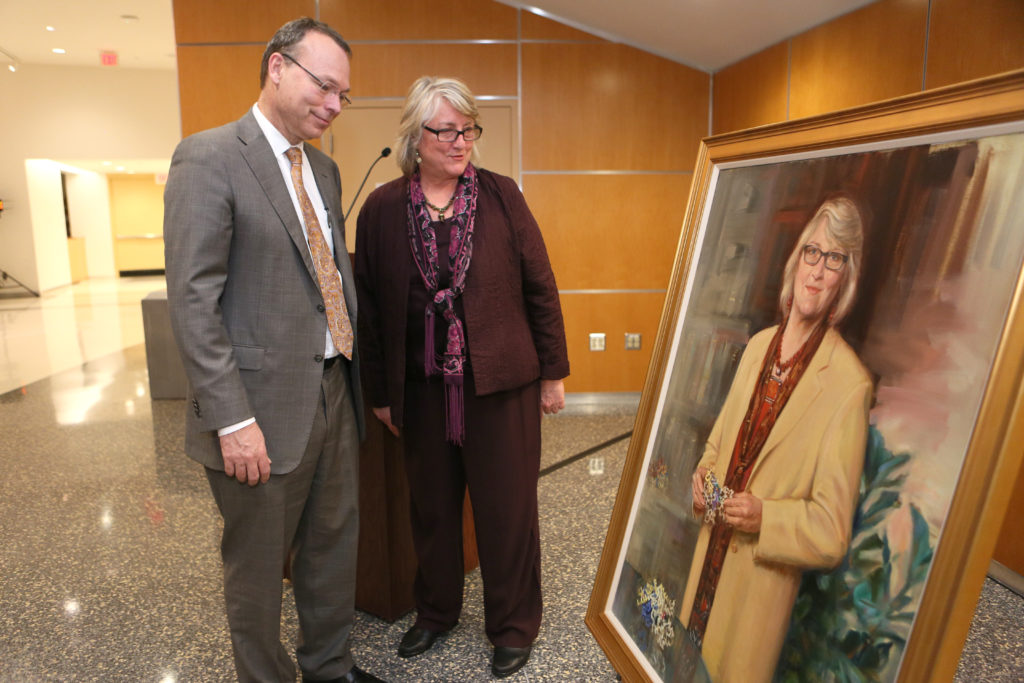
Dr. Barnett was born in Evansville, Indiana where he studied biology at the University of Southern Indiana. He then completed his Ph.D. in pharmacology at Vanderbilt University in 1986. He subsequently served as a Research Fellow and Instructor in Medicine at Harvard Medical School, and returned to Vanderbilt as an Assistant Professor of Medicine in 1992. He currently serves as Professor and Vice Chair of the Department of Pharmacology; Professor of Pharmacology, Medicine, Pediatrics, and Pathology, Microbiology & Immunology; Director, Office of Medical Student Research; and Assistant Dean, Physician-Researcher Training at Vanderbilt University School of Medicine.
His research efforts are focused on growth factor receptor signaling during the development and maintenance of the cardiovascular system. He has published over 70 reports and his research has been funded by the National Institutes of Health and the American Heart Association (AHA). In 2015, he was elected Fellow of the American Association for the Advancement of Science for his studies elucidating the pharmacology of cardiovascular development.
Dr. Barnett is a long-time volunteer with the AHA and has served in several leadership positions including President of the Nashville-Davidson County Board, Chair of the Affiliate Research Committee, and President of the Greater Southeast Affiliate. He currently serves on the both the Affiliate Nomination Committee and the Multicultural Committee, as well as on the National Diversity Leadership Committee and National Research Funding Subcommittee. In 2017 he was awarded the Louis B. Russell, Jr. Memorial Award of American Heart Association that recognizes an individual who has provided outstanding service to or has enhanced the relationship between the AHA and minority or underserved communities.
